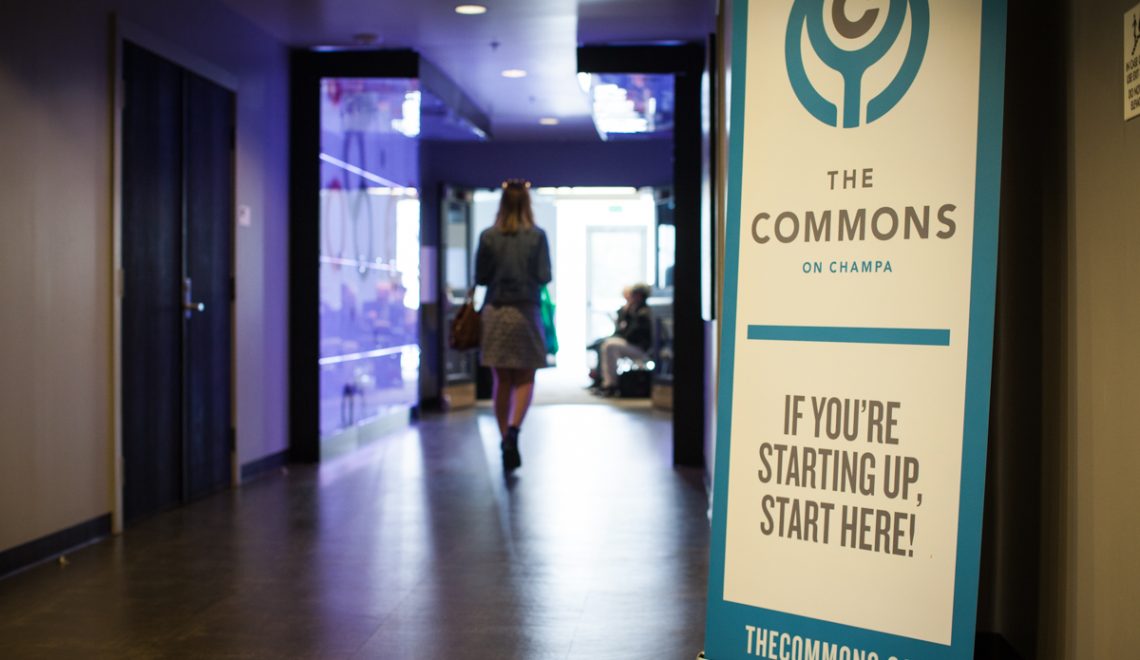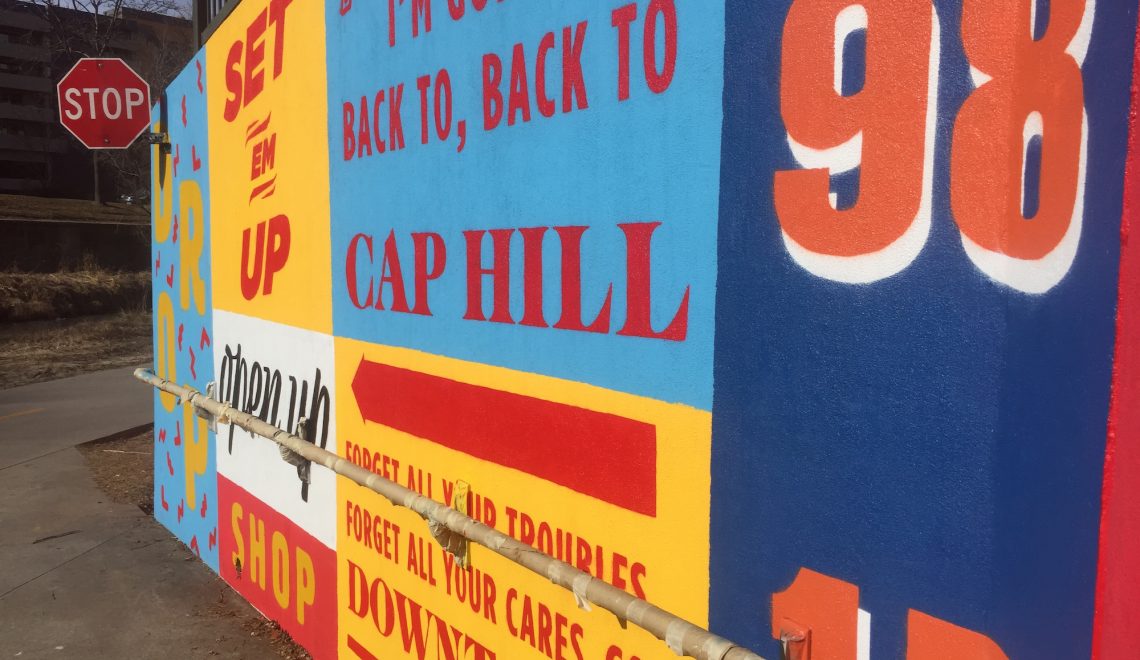By Emily Przekwas - @eprzekwa
Nestled next to the railroad line off of I-70 in the Elyria Swansea neighborhood of Commerce City, there is a small building, you might miss if you didn’t get stuck waiting for a train to pass. A colorful mural is painted on the wall disguising the industrial exterior which houses an oasis within this industrial neighborhood.
Serving the residents of the Globeville and Elyria Swansea, Growhaus, is community based agriculture project founded by Denver developer Paul Tamburello and permaculture enthusiast and food justice pioneer Adam Brock. But more than a place for food, Growhaus has become home for a community of people searching for a better way to approach food in America.
In Elyria Swansea, residents have some serious issues around food. Obesity rates are higher than they are anywhere else in Denver and the neighborhood is a food desert, which means that there is virtually no access to fresh food and produce within a 3 mile radius. The average household income is $36,000, so grocery stores, and especially those with a focus on organics, simply choose not to cater to the population because the margins would be so slim. That’s capitalism for you.
But it seems, capitalism has found an answer for this conundrum as well. Paul Tamburello, who made a living off of gentrifying the lower highlands neighborhood, appears to have a least a couple of good bones in his body. He bought the industrial building off of I-70 several years ago, and decided to donate it back to the community, making a non-profit out of the space, and put almost $500,000 of improvements into the building to make it functional.
The mission of Growhaus is to “catalyze a neighborhood based food system in the community” and it focuses on three areas to reach that goal, food production, food distribution, and food education. Residents of the Globeville and Elyria Swansea neighborhoods have access to the small grocery store on the site that sells organic produce at cost for neighborhood residents.
For residents outside the Globeville and Elyria Swansea zip codes, the produce is still very reasonably priced, and the income goes back into Growhaus projects.
The space also acts as a community resource center for students who can participate in one of the various food education programs, and members of the community who suffer from disabilities come in once a week to learn how to cook.
Although the neighborhood is a mainly residential community with a Hispanic population, and has been since the 1960s, it was an industrial neighborhood starting in the 1880s, centered around the Globe smelting plant (hence the name Globeville). Years of industrial activity in the neighborhood polluted the area and it was labeled as a superfund site subject to government remediation. However, many of the homeowners never signed up their homes for the process, and the workers at Growhaus caution residents of the neighborhood from planting gardens of their own without using raised beds.
At Growhaus, they actually use a process called aquaponic gardening which doesn’t use soil at all. Instead leafy greens are grown in water, and fish floating in the water give the plants the nutrients they need. The lettuce to sold to local restaurants like The Plimoth, The Populist, Jax Fish House and Vesta Dipping Grill. Money from the sales goes back into funding education programs at GrowHaus and other initiatives. They have future plans of growing mushrooms, which have a fairly high return on their investment, and they also have a functional bee colony out in the back of the building.
Tours of the space are offered on Fridays and Saturday mornings at 10 am, when you can see the building and learn more about the methods used to grow food there. For a Friday morning tour, Nate Looney stopped by to see the space. He is part of a group called Veterans to Farmers which helping veterans returning from service abroad learn how to create a profitable agricultural businesses. Looney came to Growhaus to learn more about the hydroponic farms and is in Denver for 6 weeks to participate in the program.
According to executive director Coby Gould, Growhaus is really looking to create culture out of agriculture, by developing a community around food. And when you look around the space, you do get a feeling that the future of food may not be so far off from this model. Co-founding member Adam Brock, a local food justice pioneer and Denver native, is passionate about transforming the food economy into something more sustainable but relying more on food that can grow vertically, like the hydroponic gardens, and food that is more naturally suited to the environment of Colorado.
But despite all the good vibes, and happy work that Growhaus does, there is something about it that makes me queasy. The irony is the importance that Growhaus puts on culture and community. I can’t help but thinking about the culture and community that is disappearing over in west Denver as a result of gentrification and development, something founder Paul Tamborello was directly a part of.
But, I guess the question is, can something good come out of something, well, not so good? One of the women helping out in the store grew up in west Denver and I ask her what she thinks, “Paul Tamborello is a great guy. I don’t see any other developers doing stuff like this.”




